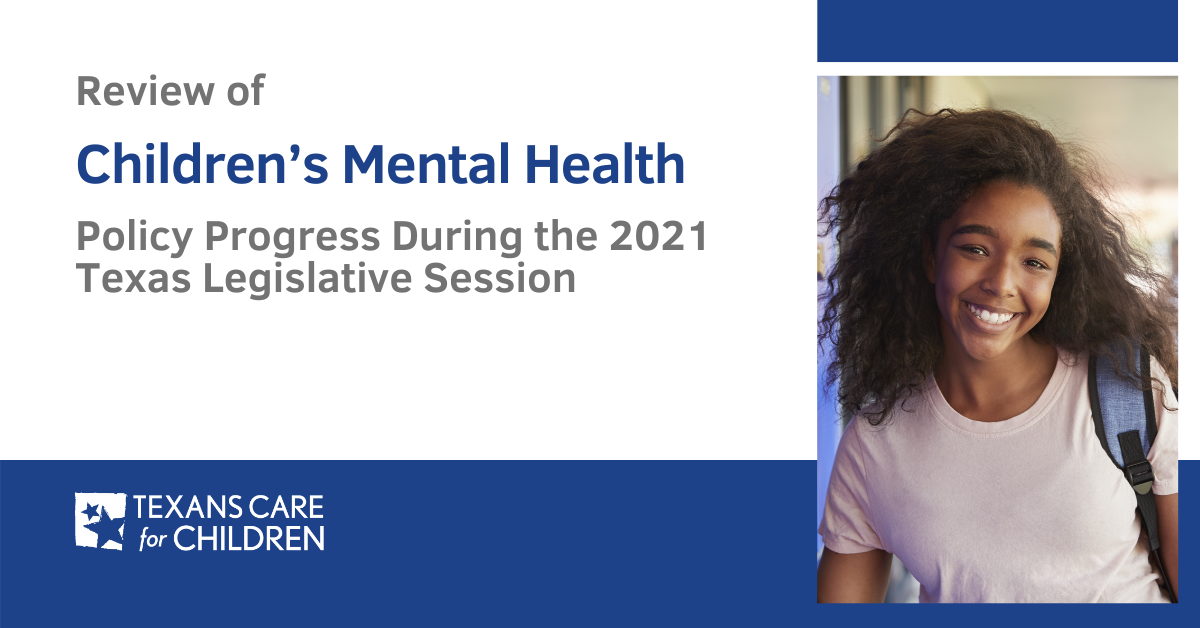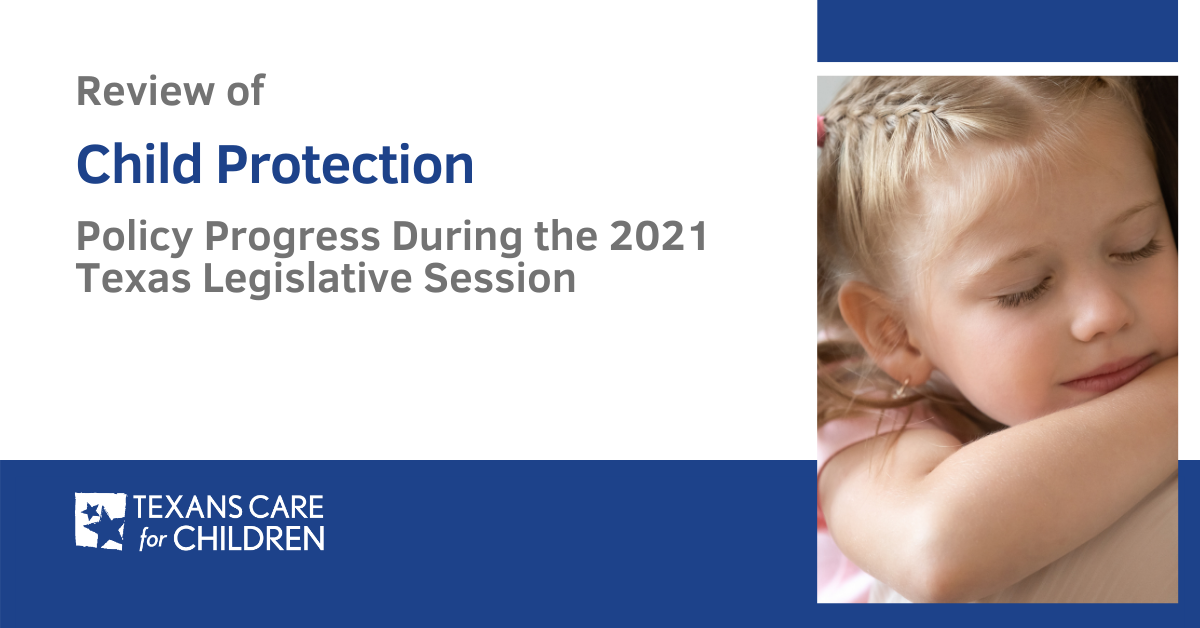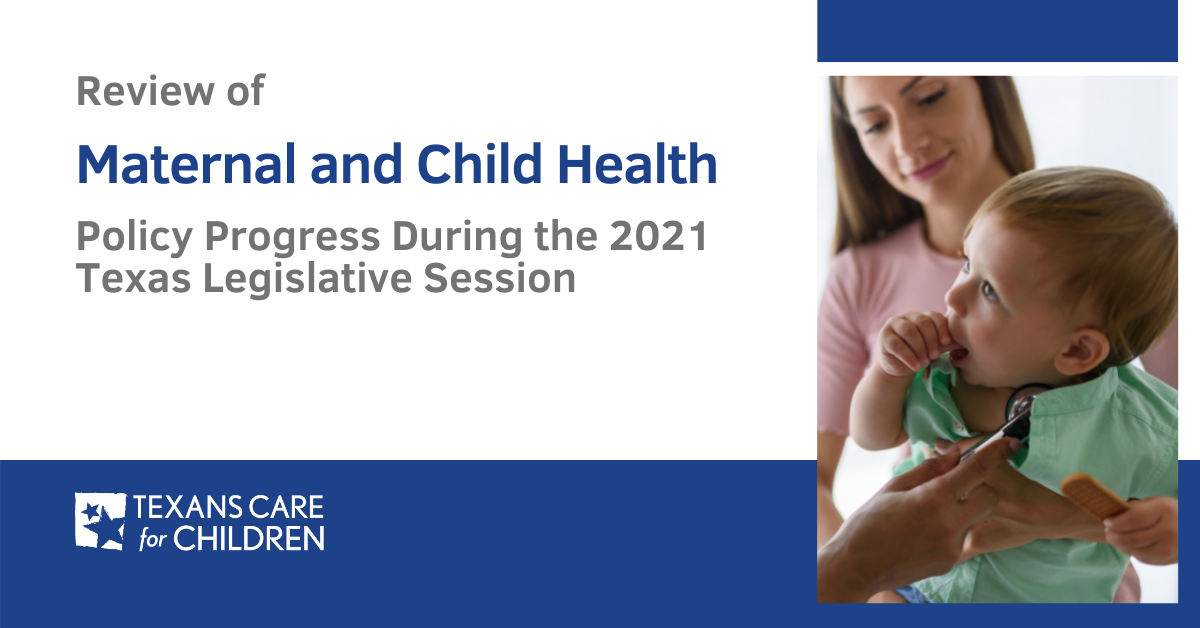This session, the Legislature made important progress supporting young children in both pre-k and child care so they are ready to succeed in school and supporting young emergent bilingual students so they become strong readers by third grade and master both English and their home language. The launch of the bipartisan Texas House Early Childhood Caucus this session by Reps. Diego Bernal, Angie Chen Button, James Talarico, and Julie Johnson set the tone. On the child care front, it was a particularly big year at the Legislature. The most significant child care bill that passed will, over time, boost the quality of care offered by providers who participate in the subsidy system. On the school front, the Legislature passed four of the bills recommended by the Texas Early Childhood English Learner Initiative that we launched last year with our partners. One of the bills from that package will set a pre-k class size limit of 22 students, a proposal that had languished for years at the Legislature. Despite concerns early in session, the Legislature also maintained full funding for schools.
Early in the legislative session, Rep. Angie Chen Button chaired an important hearing on a package of child care bills in the House International Relations and Economic Development Committee, providing a launching pad for greater attention in the Legislature to how to improve access to quality child care. Our staff worked in coalition to push these bills, with partners like Children at Risk and the Dallas Early Education Alliance leading the effort to support the bill authors. These bills were also priorities for the Texas Prenatal to Three Collaborative, a partnership that we co-lead with our partners to ensure state policy supports infants, toddlers, and their parents during the critical years of early childhood.
The most significant bill to pass from the child care package was HB 2607 by Rep. Talarico and Sen. Eddie Lucio, Jr. The bill will improve the experience of children in child care by requiring providers who receive subsidies to also participate in Texas Rising Star, the state’s program for measuring and improving the quality of child care. Other key child care legislation from that hearing that went on to pass were HB 1792 by Rep. Button and Sen. Judith Zaffirini, which standardizes Texas Rising Star assessments; SB 1555 by Sen. Zaffirini and Rep. John Raney, which sets equitable reimbursement rates for child care providers serving infants and toddlers; and HB 619 by Rep. Senfronia Thompson and Sen. Carol Alvarado, which directs the Texas Workforce Commission to develop a strategic plan to improve the effectiveness of the child care workforce by increasing compensation, expanding professional development opportunities, and more.
The Legislature also passed several important bills proposed by the Texas Early Childhood English Learner Initiative that we launched last year with our partners. We appreciate Senators José Menéndez, Eddie Lucio, Jr., and Brandon Creighton and Reps. Bobby Guerra, James Talarico, and Harold Dutton for their leadership on these bills. Following the recommendations of the Initiative, the Legislature passed HB 2256 to establish a teaching certificate in bilingual special education. The bill will equip teachers to more quickly and accurately identify emergent bilingual students who need additional assistance and provide that support more effectively. The Legislature also passed SB 560 to establish a State Strategic Plan for Bilingual Education. This plan will include tangible goals and timelines to increase the number of educators certified in bilingual education, increase the number of one-way and two-way dual language programs, educate families and school districts on the importance of bilingual education, adopt a uniform process for identifying emergent bilingual students in pre-k through 12th grade, and increase the number of bilingual and multilingual high school graduates. Additionally, the Legislature passed SB 2066, updating the Education Code to change the term “limited English proficient” to "emergent bilingual," a term that better reflects students' bilingual potential and strengths. Alongside our staff, our partners in the Texas Early Childhood English Learner Initiative, particularly IDRA, played a critical role developing and supporting these bills in collaboration with the legislators and their staff.
The Legislature also passed a recommendation by the Initiative to finally establish a pre-k class size limit. SB 2081 will limit pre-k classes in public schools to a maximum of 22 students, the limit already in place for kindergarten through fourth grade. By ensuring that pre-k students no longer have to compete with 25 or 30 other four-year-olds for the attention of a single teacher, the bill will ensure more children are on a path to become strong readers by third grade. Another good pre-k bill that passed this session, HB 725 by Rep. Jared Patterson and Sen. Zaffirini, makes Texas children eligible for public school pre-k if they were in foster care in other states.
While there were some concerns about potential funding cuts for pre-k and other education investments heading into the legislative session, the Legislature largely kept its commitment to education funding. An essential component to these efforts was ensuring that attendance-based funding in pre-k and Kindergarten was not jeopardized due to enrollment declines from COVID-19. Our team joined a chorus of education advocates, educators, administrators, and legislators who successfully secured a full “hold-harmless” for the entirety of the 2020-21 school year.
In addition to state funds, Texas has an opportunity to bolster education through the massive influx of federal funds that have been allocated through the American Rescue Plan Act of 2021. Key to this strategy will be how the state allocates the $12.4 billion Elementary and Secondary School Emergency Relief Funds designed to address COVID-19’s impact on schools, as well as the $4.4 billion available to support child care programs. It will be critical to ensure these funds do not supplant any state dollars and support the students and families most impacted by the pandemic, including emergent bilingual children, children from families with low incomes, and people of color.
Advocates and other Texans will need to monitor and be engaged in state efforts to allocate federal funds as well as the significant work ahead to implement the bills passed by the Legislature. For example, as Texas officials develop a state strategic plan to support emergent bilingual students, we’ll work to shape the plan and then build on its recommendations. Although lawmakers took substantial steps to bolster the effectiveness of early childhood education, there remains significant work ahead to ensure all children have access to early childhood education opportunities that can help give them a strong start.





